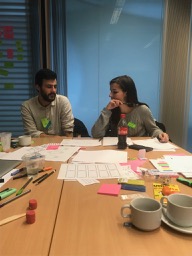COVID-19 related isolation is likely to increase stress, anxiety, depression, and social withdrawal[1]. Likewise, there will be increased burden on family and friends who have other responsibilities and/or may experience illness themselves[2]. The burden on formal carers is also likely to increase, with extensive lists of vulnerable people requiring emotional support[3].
While there is extensive existing research/design/implementation on and for digital health technologies, we know little about specific psychological needs and design requirements for digital support systems within a pandemic requiring social distancing. As outlined by SAGE[4], we urgently need qualitative research with individuals who have experienced social distancing as well as evidence of the pandemic’s effects on vulnerable groups, including older people.
Social connections reduce loneliness and promote wellbeing[5]; however, there are little data on how these relationships operate in real-time. This project will provide both personalized and generalizable insights which can be applied to evidence-based guidance and automated decision support.
Socially distanced older people, carers, and link workers might benefit from using digital technologies for requesting, offering, and accepting social and emotional support; we need to understand their needs and motivations for engagement as well as stakeholder design requirements.
We are unaware of digital platforms suitable for current needs, particularly that offer emotional support in a secure, privacy-aware, transparent, and trustworthy environment.
[1] https://doi.org/10.1016/S0140-6736(20)30460-8
[2] https://bit.ly/2WiTlnB
[3] https://bit.ly/2xnZMNS
[4] https://bit.ly/2VX2l3b
[5] https://bit.ly/3d2PVfF

